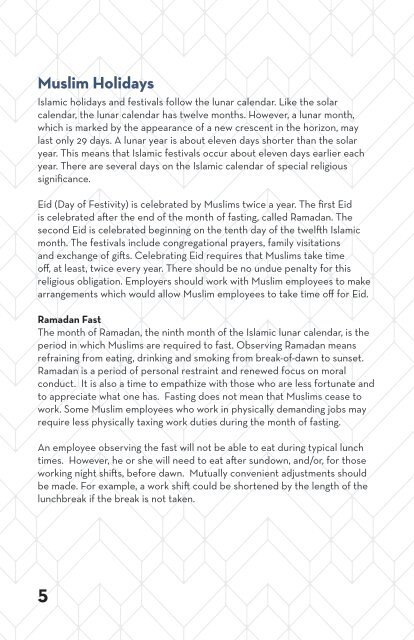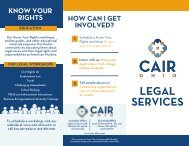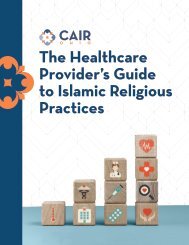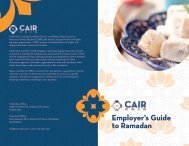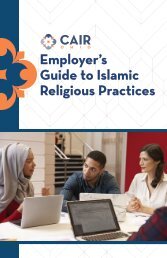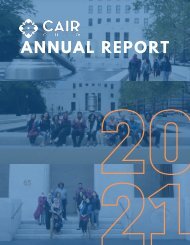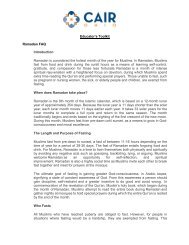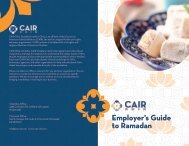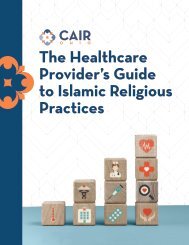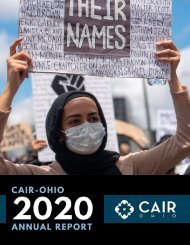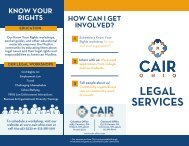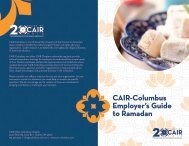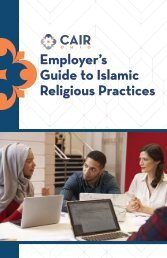CAIR-Ohio Employer's Guide to Religious Practices
You also want an ePaper? Increase the reach of your titles
YUMPU automatically turns print PDFs into web optimized ePapers that Google loves.
Muslim Holidays<br />
Islamic holidays and festivals follow the lunar calendar. Like the solar<br />
calendar, the lunar calendar has twelve months. However, a lunar month,<br />
which is marked by the appearance of a new crescent in the horizon, may<br />
last only 29 days. A lunar year is about eleven days shorter than the solar<br />
year. This means that Islamic festivals occur about eleven days earlier each<br />
year. There are several days on the Islamic calendar of special religious<br />
significance.<br />
Eid (Day of Festivity) is celebrated by Muslims twice a year. The first Eid<br />
is celebrated after the end of the month of fasting, called Ramadan. The<br />
second Eid is celebrated beginning on the tenth day of the twelfth Islamic<br />
month. The festivals include congregational prayers, family visitations<br />
and exchange of gifts. Celebrating Eid requires that Muslims take time<br />
off, at least, twice every year. There should be no undue penalty for this<br />
religious obligation. Employers should work with Muslim employees <strong>to</strong> make<br />
arrangements which would allow Muslim employees <strong>to</strong> take time off for Eid.<br />
Ramadan Fast<br />
The month of Ramadan, the ninth month of the Islamic lunar calendar, is the<br />
period in which Muslims are required <strong>to</strong> fast. Observing Ramadan means<br />
refraining from eating, drinking and smoking from break-of-dawn <strong>to</strong> sunset.<br />
Ramadan is a period of personal restraint and renewed focus on moral<br />
conduct. It is also a time <strong>to</strong> empathize with those who are less fortunate and<br />
<strong>to</strong> appreciate what one has. Fasting does not mean that Muslims cease <strong>to</strong><br />
work. Some Muslim employees who work in physically demanding jobs may<br />
require less physically taxing work duties during the month of fasting.<br />
An employee observing the fast will not be able <strong>to</strong> eat during typical lunch<br />
times. However, he or she will need <strong>to</strong> eat after sundown, and/or, for those<br />
working night shifts, before dawn. Mutually convenient adjustments should<br />
be made. For example, a work shift could be shortened by the length of the<br />
lunchbreak if the break is not taken.<br />
5


